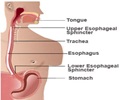Muscle cells grown in the lab have been found effective in restoring an intestine's ability to squeeze shut properly, a research team led by Indian-origin scientist has revealed.
Muscle cells grown in the lab have been found effective in restoring an intestine's ability to squeeze shut properly, a research team led by Indian-origin scientist has revealed.
The work conducted using animal models might ultimately help treat patients with conditions such as gastric reflux and fecal incontinence.The technique can be used to strengthen sphincters, which are the bands of muscle that separate the major sections of your intestinal tract.
"This represents a very logical and new direction for treatment of such conditions," said Dr Stanford professor of medicine Pankaj Pasricha, lead author of the study in the December 2009 issue of Gastrointestinal Endoscopy.
"After injecting muscle cells in that area of weakness, those muscle cells thrive and get integrated into the existing tissues, and then add to the strength of the sphincter," he added.
While most reflux and some fecal incontinence patients benefit from diet and lifestyle changes and daily medications, surgery may be the only option for patients who have persistent symptoms even after medical treatments.
It includes altering sphincter structure or injecting bulking agents to make the opening of the sphincter smaller. These invasive surgeries involve heavy sedation and days of recovery.
Advertisement
A similar procedure is successfully improving bladder sphincter function in human trials of patients with urinary incontinence.
Advertisement
Source-ANI
RAS









